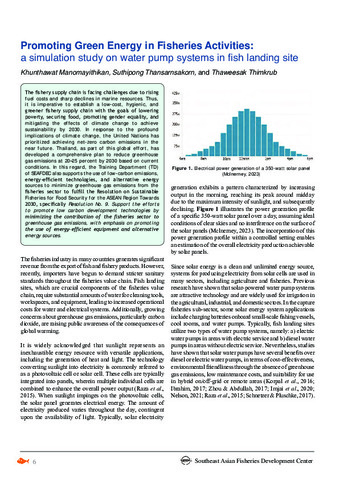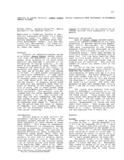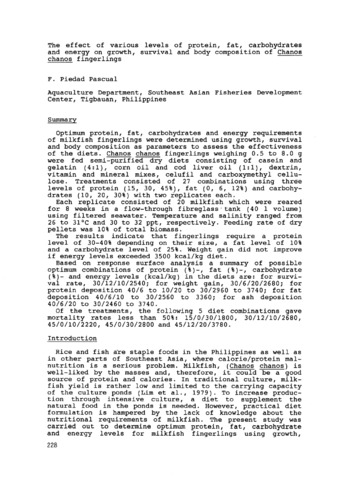| dc.description.abstract | The fishery supply chain is facing challenges due to rising fuel costs and sharp declines in marine resources. Thus, it is imperative to establish a low-cost, hygienic, and greener fishery supply chain with the goals of lowering poverty, securing food, promoting gender equality, and mitigating the effects of climate change to achieve sustainability by 2030. In response to the profound implications of climate change, the United Nations has prioritized achieving net-zero carbon emissions in the near future. Thailand, as part of this global effort, has developed a comprehensive plan to reduce greenhouse gas emissions at 20–25 percent by 2030 based on current conditions. In this regard, the Training Department (TD) of SEAFDEC also supports the use of low-carbon emissions, energy-efficient technologies, and alternative energy sources to minimize greenhouse gas emissions from the fisheries sector to fulfill the Resolution on Sustainable Fisheries for Food Security for the ASEAN Region Towards 2030, specifically Resolution No. 9. Support the efforts to promote low carbon development technologies by minimizing the contribution of the fisheries sector to greenhouse gas emissions, with emphasis on promoting the use of energy-efficient equipment and alternative energy sources. | en |




